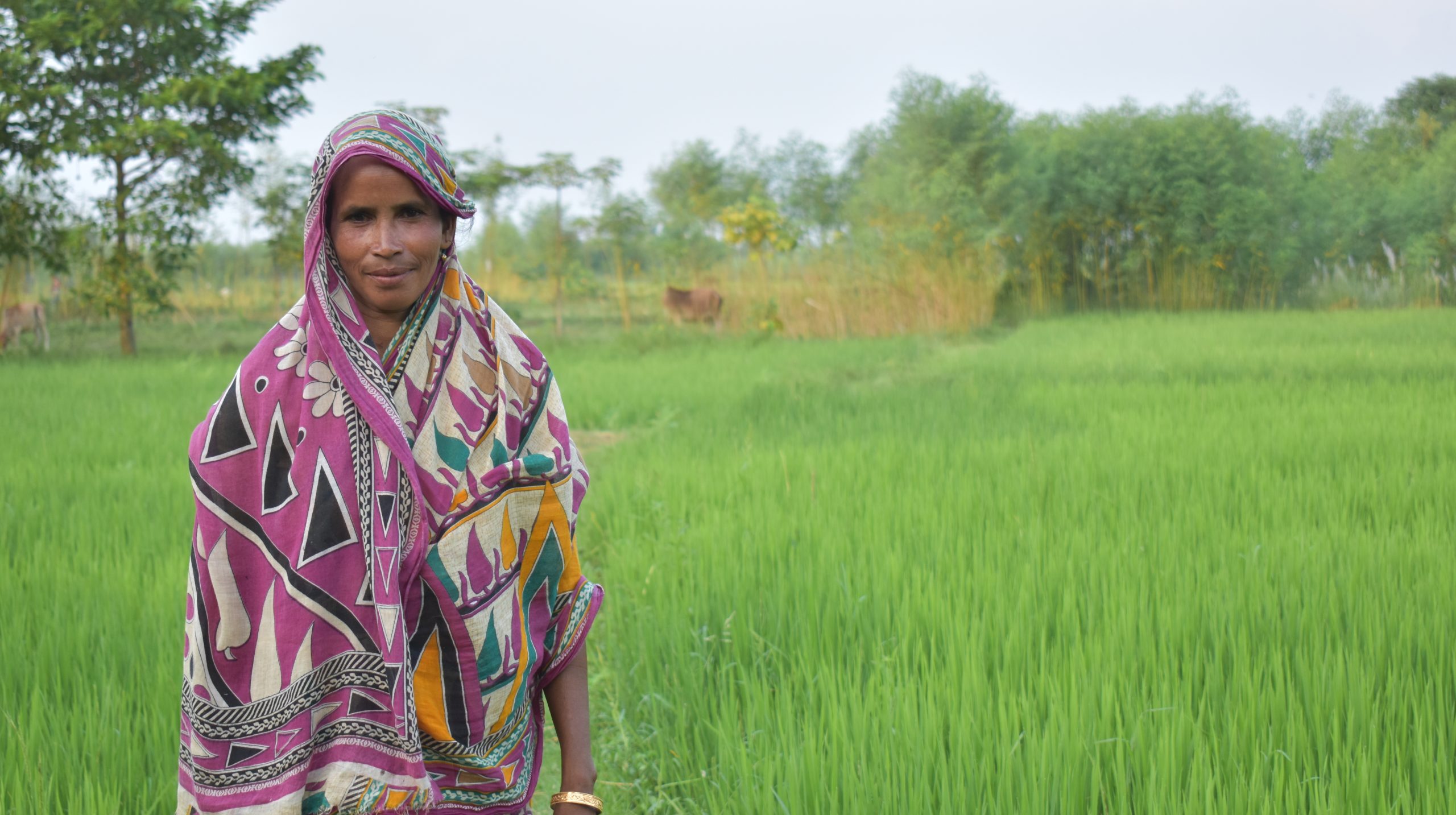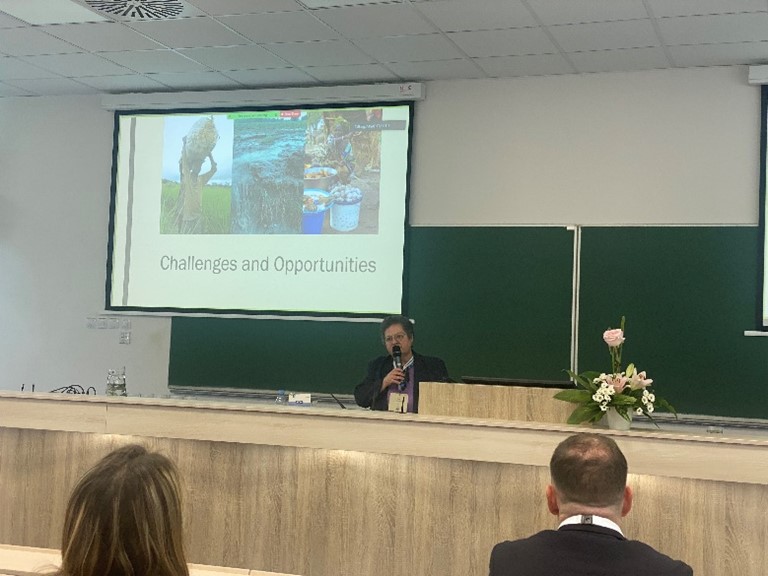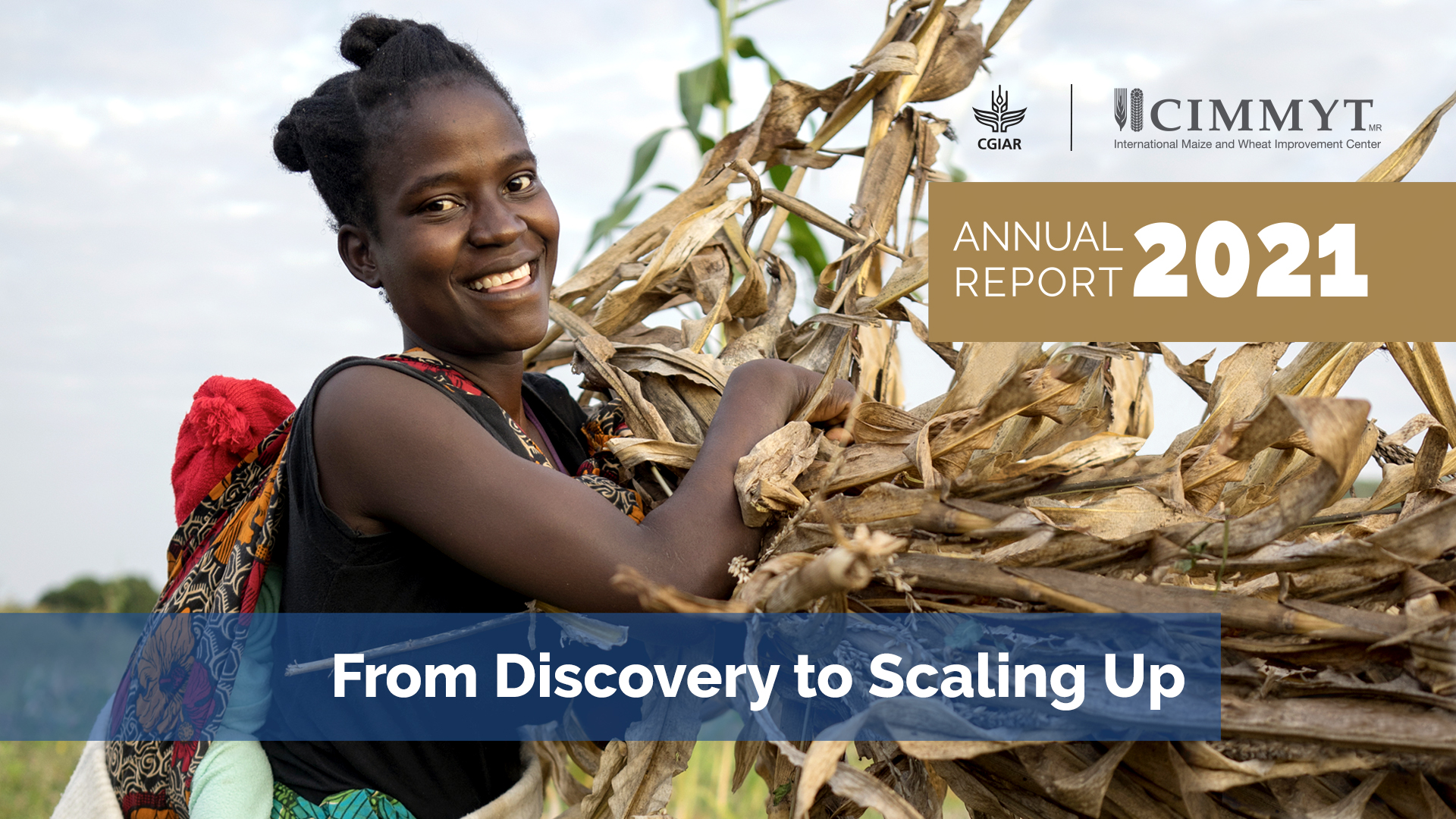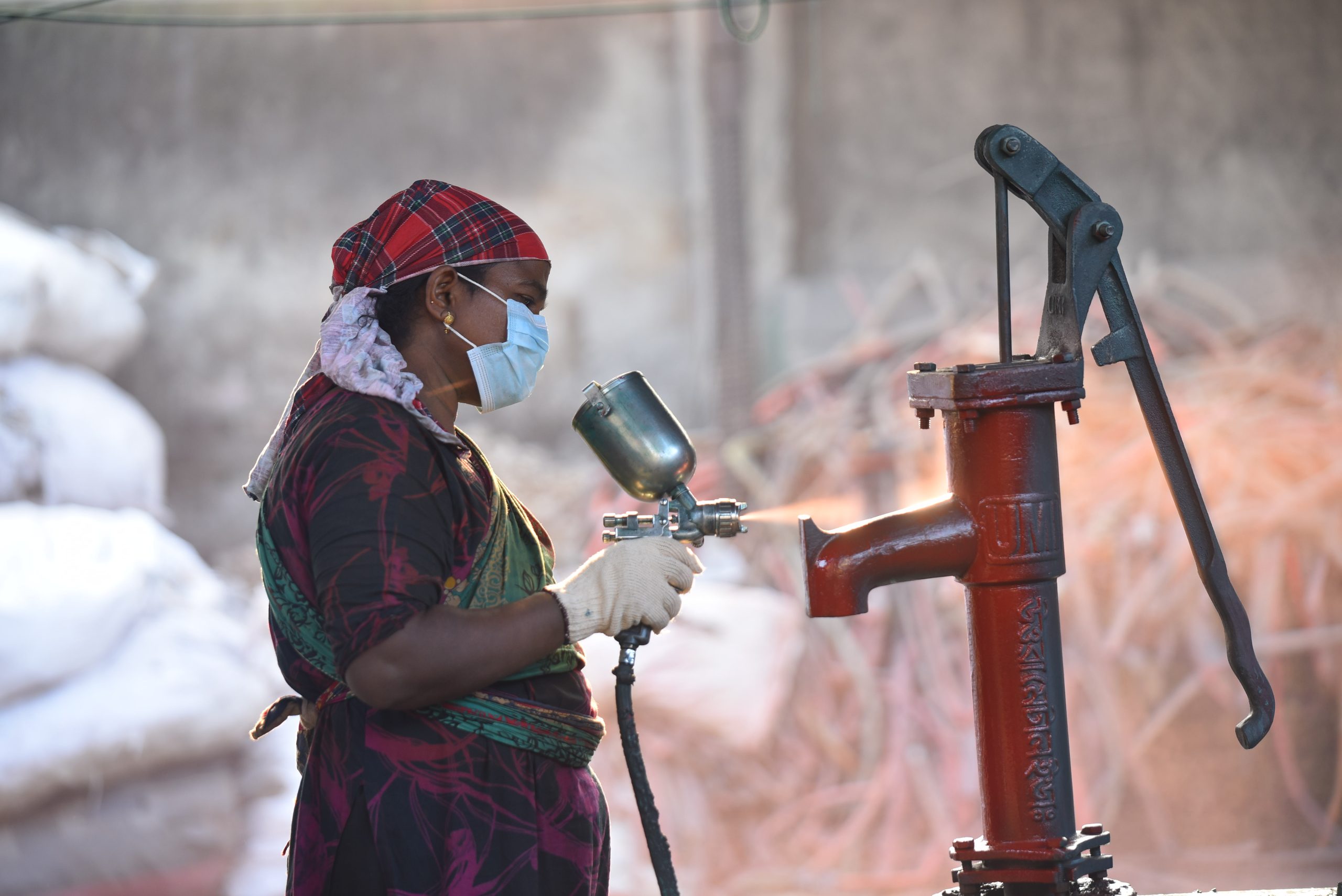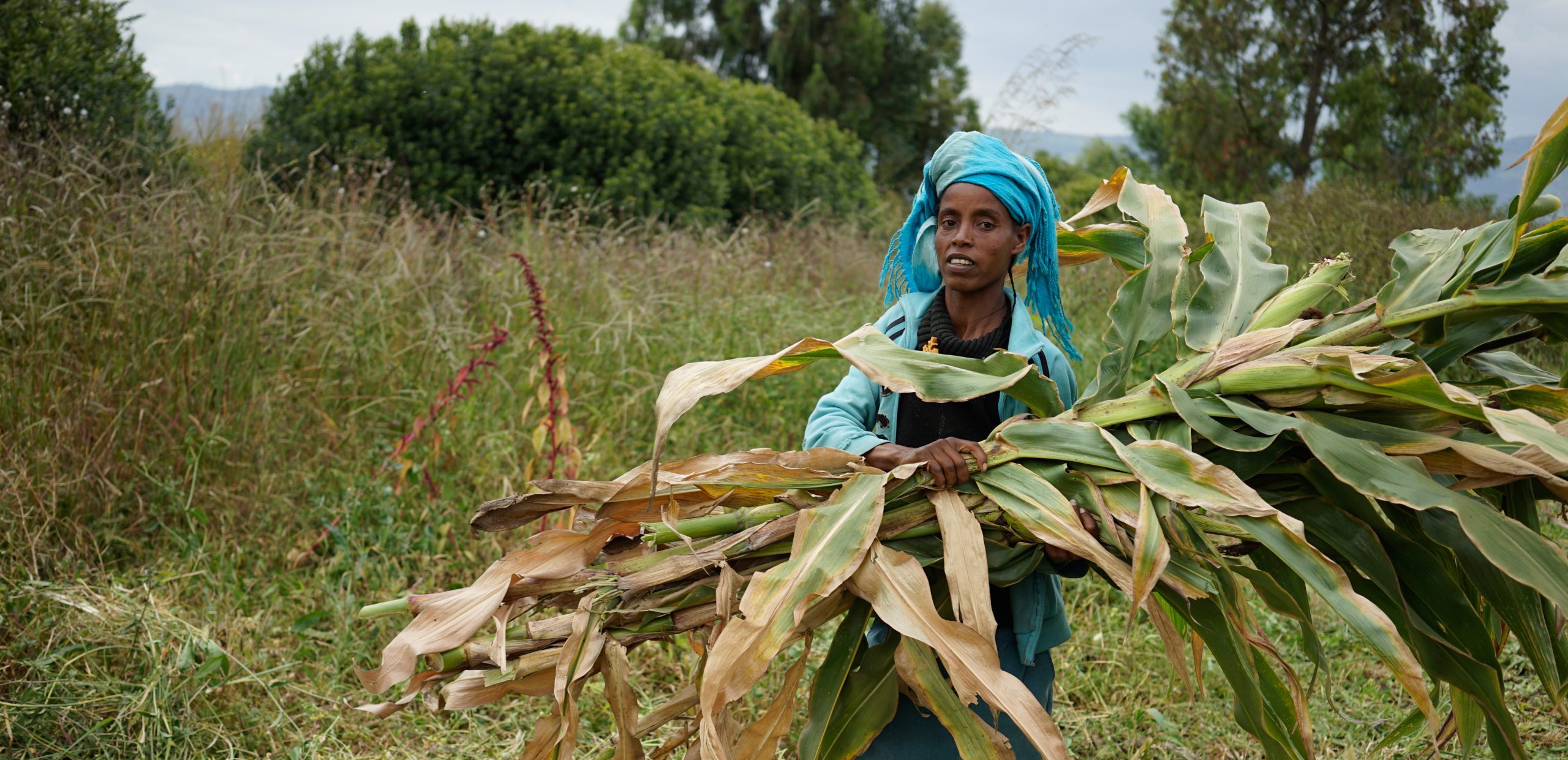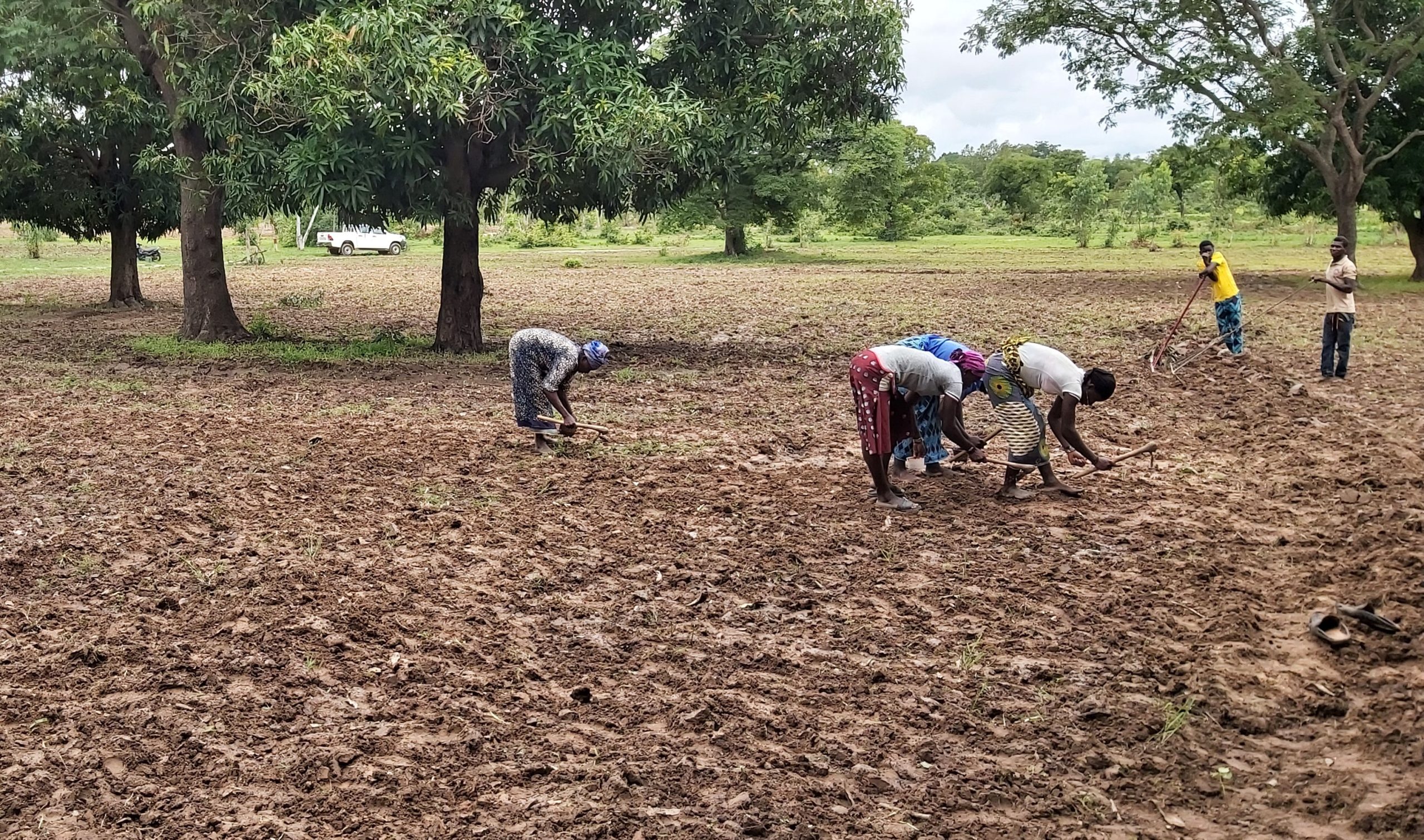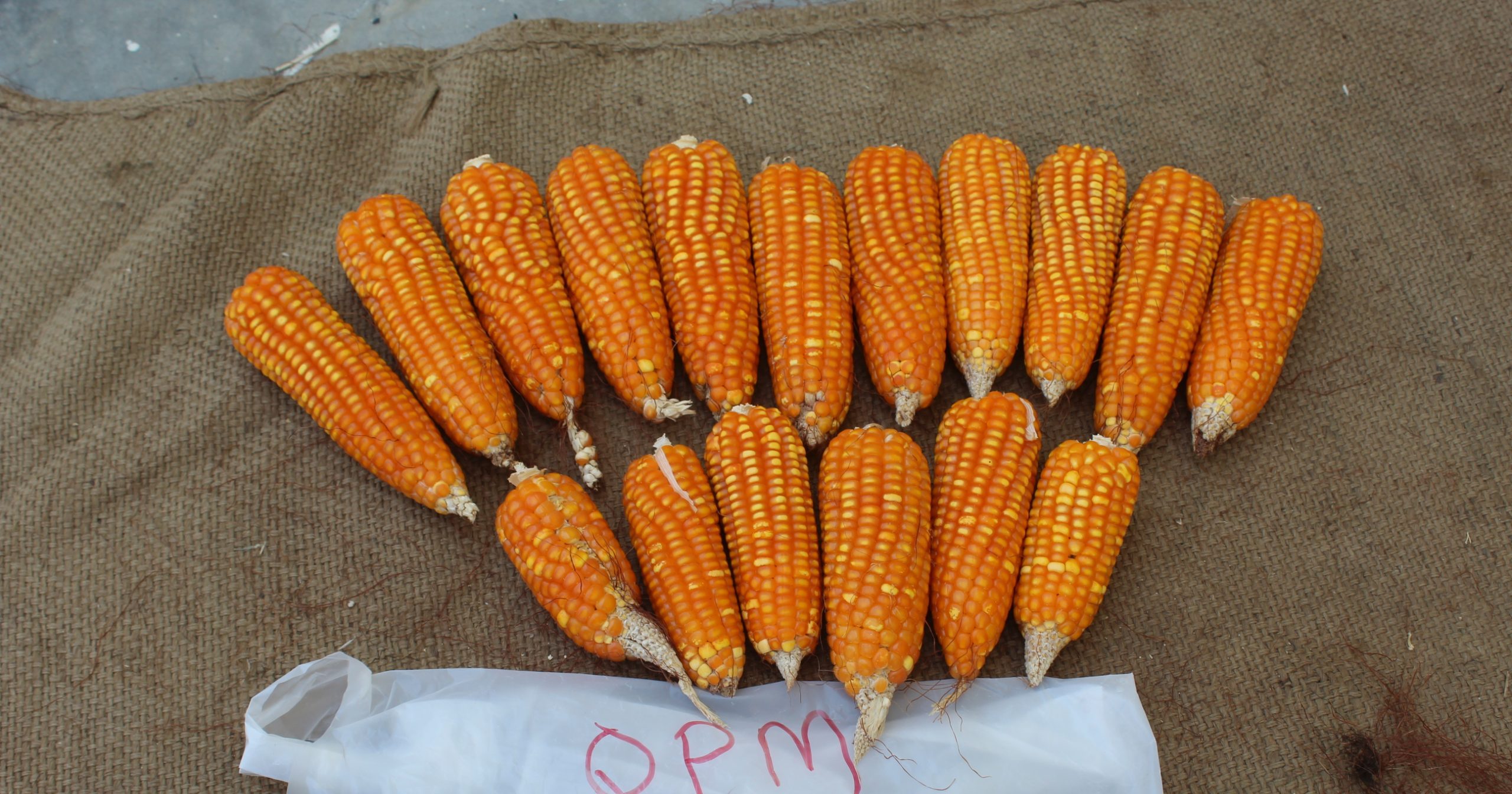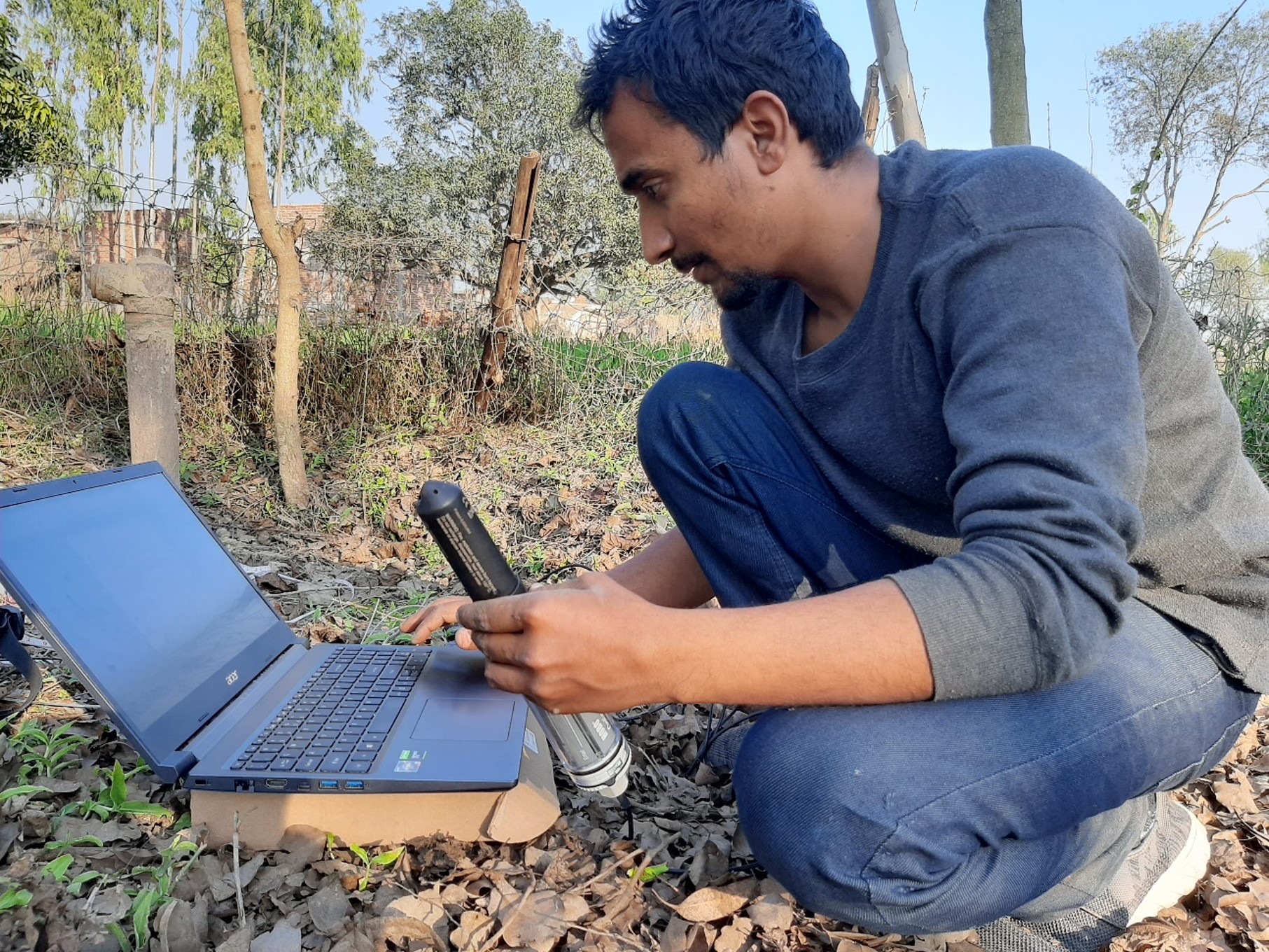Sustainable agrifood systems
Exploring the potential for scaling nutritious cereal-based foods
 Nutrition, health and food security
Nutrition, health and food security
CIMMYT’s agrifood systems research looks at how to better connect farmers to consumers in a sustainable way, allowing for higher benefits from farming and increased access to nutritious cereal-based food for consumers.
The critical role of smallholder farmers of the Eastern Gangetic Plains in the global food chain
 Gender equality, youth and social inclusion
Gender equality, youth and social inclusion
For World Food Day, discover how CIMMYT is improving food security, livelihoods and nutrition in South Asia, with support from ACIAR.
Is uptake of rust-resistant wheat linked to gender equality?
 Environmental health and biodiversity
Environmental health and biodiversity
CIMMYT presents data to Tropentag on potential benefits of women participation in household decisions on crop farming and variety selection.
Annual Report 2021 launched
 Capacity development
Capacity development
CIMMYT discovers and validates new science, translates it into innovations, and scales them up for farmers and society.
Stepping up for South Asian women
 Gender equality, youth and social inclusion
Gender equality, youth and social inclusion
Through the CSISA project, CIMMYT is helping female farmers in Bangladesh, India, and Nepal to receive the recognition and opportunities they deserve.
Gender-informed policies fundamental for climate change adaptation
 Climate adaptation and mitigation
Climate adaptation and mitigation
Reducing the gender gap in Ethiopian farming households can enhance climate change adaptation by female-headed households by almost 19%.
Advice for food systems in crisis featured in GAP Report
 Nutrition, health and food security
Nutrition, health and food security
CIMMYT explains how the world can protect agrifood systems from market shocks, such as the conflict in Ukraine, to prevent food insecurity.
In Burkina Faso, a business model for mechanization is providing hope
 Innovations
Innovations
CIMMYT and its partners are helping farmers branch out into business to improve crop yield and create job opportunities in their communities.
Quality protein maize: a road ahead
 Nutrition, health and food security
Nutrition, health and food security
To alleviate malnutrition associated with essential amino acids, QPM development and deployment should be further proliferated to reach a large number of consumers.
Connect rural areas with digital innovations to unlock climate resilience for hundreds of millions of farmers
 Innovations
Innovations
Jawoo Koo, IFPRI, and Andrea Gardeazabal, CIMMYT, explain how smallholders in Africa, Asia and Latin America will benefit from the CGIAR Initiative for Digital Innovation.
Scientist urges upgrades to monitor groundwater use for agriculture in low-income countries
 Innovations
Innovations
Successful testing of phone-based groundwater monitoring in the Nepal Terai was described at World Water Week in Stockholm.
Opinion: Feeding people on this warming Earth requires future-proofing our agri-food systems. Here’s how.
 Nutrition, health and food security
Nutrition, health and food security
Source: MarketWatch (23 Sep 2022)
Models of funding for agricultural research and development (R&D) need to adapt in order for the world to meet current challenges to agrifood systems.


